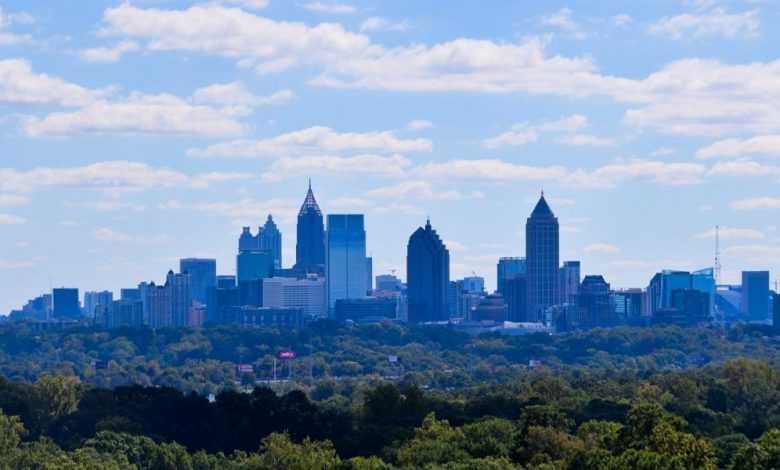Atlanta’s Buckhead neighborhood is on the verge of secession

A move to create a new city out of Atlanta’s wealthiest, whitest neighborhoods picked up some steam this week after being blocked by Georgia lawmakers last year.
Two bills that would collectively allow Buckhead District to secede from the city passed a Georgia Senate committee on Monday and could be up for a vote as early as Wednesday.
If approved by both chambers of legislature and signed by Gov. Brian Kemp, the measures would allow residents of the approximately 40-square-mile Buckhead area to vote in November 2024 on whether to leave Atlanta and form their own city.
While Buckhead City’s movement has a powerful supporter in Lieutenant Governor and Senate President Burt Jones, the measures are expected to face opposition in the House of Representatives.
Michael Smith, a spokesman for Atlanta Mayor Andre Dickens, said City Hall “will continue to work with the Senate to end this legislation before it has catastrophic results.”
Urged by rural legislatures and opposed by Atlanta’s elected officials and business community, the proposed new city would consume nearly one-fifth of Atlanta’s population and an estimated 38% of its tax revenue. It could affect Atlanta’s credit ratings as well as city ratings across Georgia. Moody’s Investors Service announced in October that it maintained an Aa1 rating on the city’s approximately $650 million of outstanding general tax liabilities.
Former Lieutenant Governor Geoff Duncan scuttled efforts last year by handing the secession bill to a committee made up entirely of city Democrats who opposed it. Former House Speaker David Ralston, who died last year, killed it in the House of Representatives.
Legislation before the General Assembly sets out the proposed new city’s charter, including its ability to regulate everything from live chickens to pawnshops, and what the new city’s councilors will be paid, which is roughly equivalent to what Atlanta councilors now earn . It also sets terms for what would happen to Atlanta’s assets within the boundaries of the proposed new city.
The proposal would allow Buckhead City to acquire Atlanta parkland within its borders for as little as $100,000 an acre, even though an acre in the neighborhood can take in ten times that amount. Atlanta would also have to either split all assets outside of its city limits with Buckhead City’s proposed boundaries, or sell them and split the proceeds. That includes an 85-acre property south of the city that is now set to become a controversial police training center dubbed Cop City by opponents.
Georgia legislatures have allowed unincorporated areas of Atlanta to vote to form their own cities for nearly two decades. But it only allowed one vote to leave, an affluent subdivision in the small town of Stockbridge south of Atlanta. Subdivision residents opposed secession in 2018.
Though there have been rumors of a potential Buckhead split for years, the effort picked up steam over the past year amid crime concerns. In the year since the last push failed, crime in the police district, which includes Buckhead, has fallen, according to the mayor’s office.
Learn how to navigate and build trust in your organization with The Trust Factor, a weekly newsletter exploring what leaders need to succeed. Login here.



